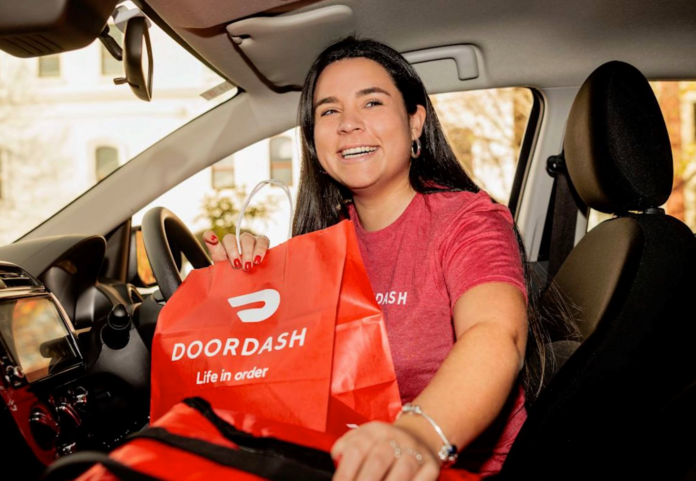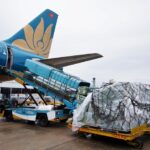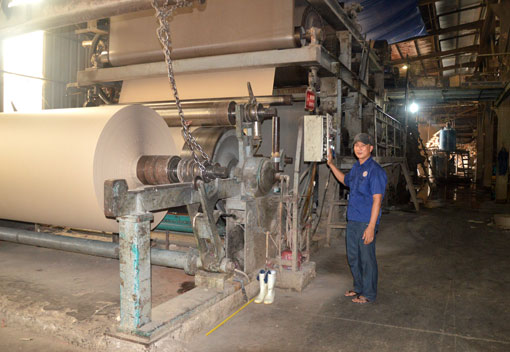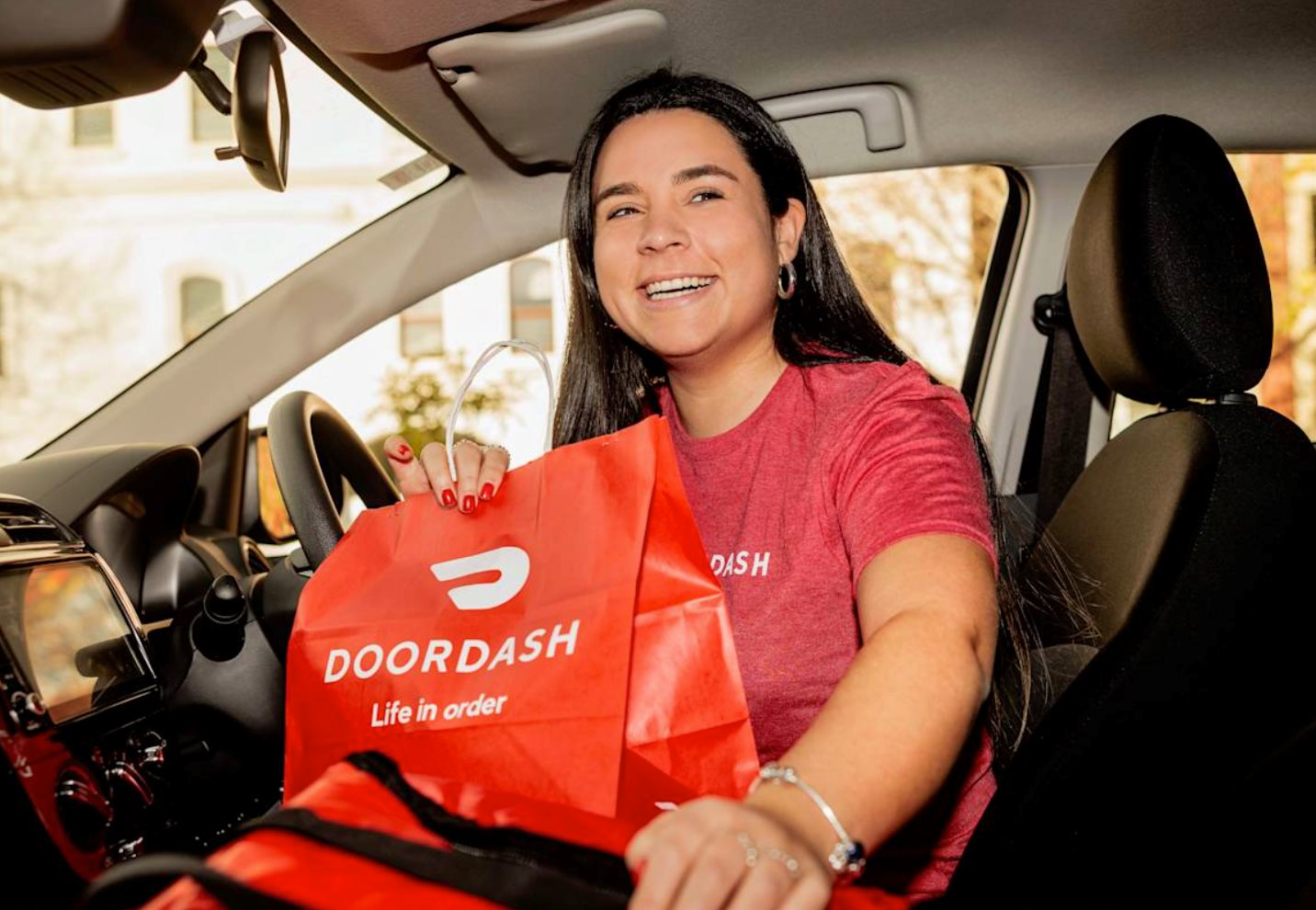
DoorDash, a food delivery and logistics company, was founded in 2012 by Tony Xu, Andy Fang, and Stanley Tang. After experiencing exponential growth, the company became an American consumer icon when it turned a net profit for the first time in 2024 – a significant step in its evolution from a startup to a truly profitable enterprise.
During the 2024 fiscal year, DoorDash’s revenue reached approximately $10.72 billion, a 24.2% increase from the previous year, while driver earnings exceeded $18 billion. Notably, in the fourth quarter of 2024 alone, total orders increased by 19% to 685 million, and revenue rose by 25% to $2.9 billion. The company recorded a profit of $141 million, compared to a loss of $154 million in the same period the previous year, according to AP.
Maintaining its growth trajectory, DoorDash set new records in the first quarter of 2025: revenue reached $3.03 billion with 732 million orders. The flexible cash flow allowed the company to increase investments and improve its capital business unit while simultaneously expanding into logistics and convenience commerce. Prior to this, DoorDash acquired the hotel finance startup SevenRooms for $1.2 billion and proposed the acquisition of the British delivery service Deliveroo for $3.9 billion. The company also set its sights on expanding into 45 countries and serving over 50 million users monthly, as reported by the Wall Street Journal.
Let’s go back to 2012 when Tony Xu, then an MBA student at Stanford, along with Andy Fang, Stanley Tang, and their classmate Evan Moore, conducted research aimed at helping small businesses tackle delivery issues. After interviewing nearly 200 owners in the Palo Alto area, they discovered that most of them rejected delivery orders due to a lack of drivers. Back then, only Domino’s and local Chinese restaurants offered delivery services.
“It was like a light bulb moment for me,” shared Tony Xu. The trio then conceived the idea of testing a delivery service named PaloAltoDelivery.com, which would become the prototype for DoorDash.
The pivotal moment for DoorDash’s inception arrived in the summer of 2013. The founders had to decide whether to persist with this venture or consider it merely a classroom project. Ultimately, they opted to rename the company DoorDash and give it their all.
“We clicked really well. I think one of the things that set our founding team apart was our mutual respect for each other’s contributions. Tony brought business acumen, while Stanley excelled at product creativity,” recalled Andy Fang.
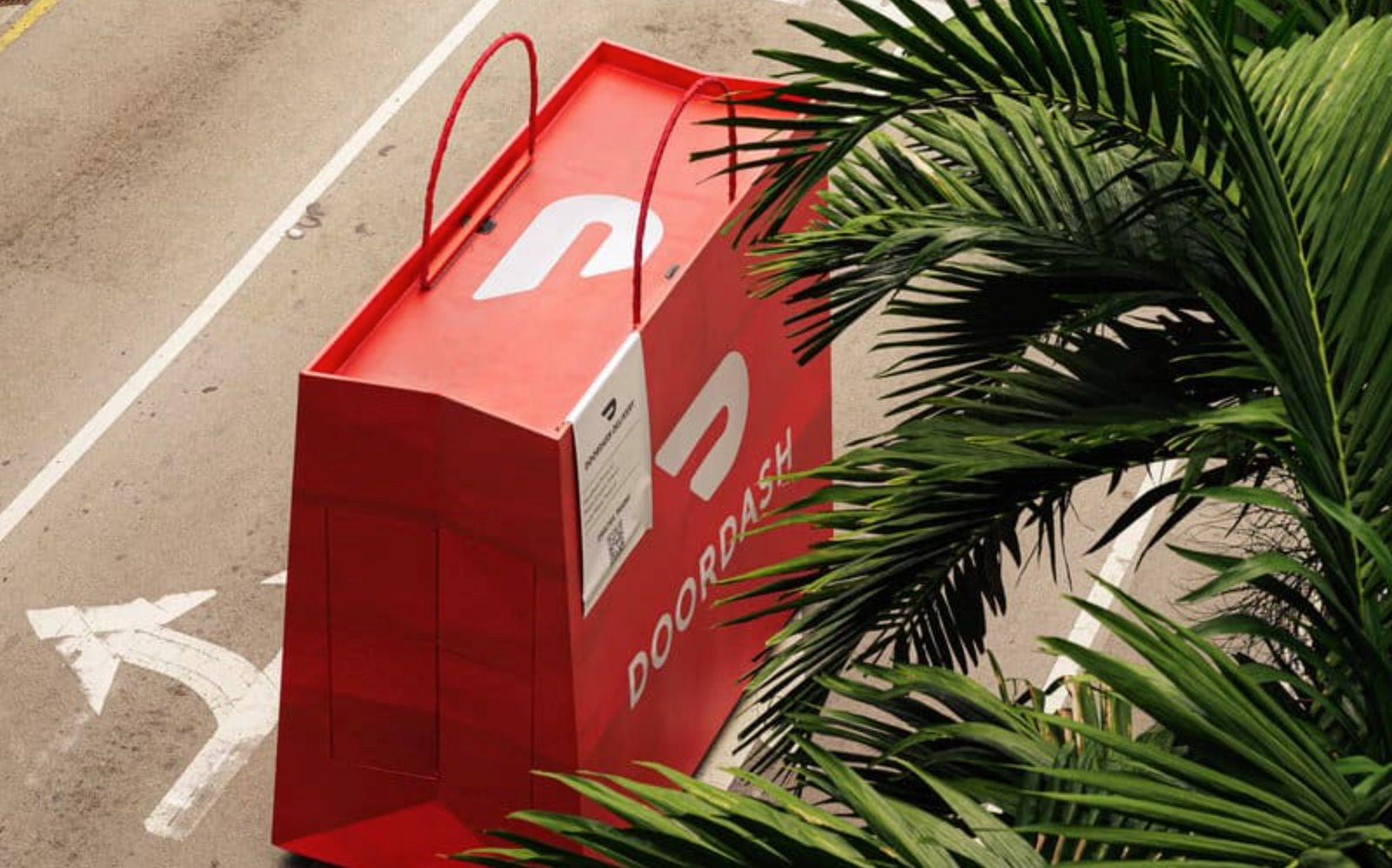
“We personally delivered the first few hundred orders, even in the middle of the night or during class,” Tony Xu recalled. Just two years later, Andy Fang and Stanley Tang were recognized in the Forbes Under 30 list in the consumer technology category. However, this period also presented a challenge for DoorDash as investors began to question the app’s profitability in an industry with limited new entrants. Investments in DoorDash slowed, and the founders had to tighten their belts, reallocating resources to stay afloat.
Fortunately, by the end of 2019, the company had raised over $2.5 billion from prominent investors like SoftBank, Sequoia Capital, and Singapore GIC, as reported by CNBC. DoorDash went public, propelling Fang into the ranks of the world’s billionaires.
In an interview with CNBC, Fang attributed their continued growth even in the post-pandemic era. After conquering the American market, DoorDash set its sights on international expansion, entering markets such as Germany and Japan.
“We work tirelessly to build an intelligent backend network. Our operations team pays attention to every detail, from where drivers can park in a city to how long it takes to make a pizza or keep an ice cream cold… Everything is carefully calculated with precision, setting DoorDash apart from other food delivery apps,” Fang emphasized. “Taking the first step is always the hardest for aspiring entrepreneurs. For me, entrepreneurship is a path I wanted to pursue, and I believed I could make it happen. I’m grateful to my parents for giving me the courage to step out of my comfort zone.”
DoorDash’s success can be largely attributed to its focus on small, independent restaurants that lacked delivery services, a segment dominating the local market. According to expert Tom Alder, the brand could increase its market share from 16% to 53% in just three years by effectively targeting this partner group. DoorDash also provided valuable market data analysis to restaurant owners, including best-selling items, delivery times, and customer demographics, enabling them to streamline their operations.
In terms of user experience, DoorDash excelled by integrating the DashPass membership program, similar to Uber One. Notably, their partnership strategy with companies like Lyft, Roku, Chegg, and JPMorgan Chase expanded their ecosystem of conveniences and fostered customer loyalty.
Even amid cost pressures, such as rising fuel prices, DoorDash remained responsive: they introduced a gas rewards program for drivers without directly passing the costs on to customers.
However, alongside the positives, DoorDash also faced financial pressures from its rapid expansion and the integration of Deliveroo and SevenRooms. Some investors expressed concerns about M&A costs and governance risks associated with entering new markets.
Nonetheless, with a market value of over $100 billion, DoorDash stands as a testament to the journey from a food delivery startup to a thriving “local” platform, offering services ranging from food and grocery delivery to restaurant software and global logistics. With consistent revenue growth, first-time profitability, and strong cash flow, the company showcases immense potential in its quest to build an on-demand services empire.
Sources: CNBC, Wall Street Journal
The Next Evolution in Vietnamese Logistics: A Startup’s Innovative Partnership with a Gas Station Giant.
Gozo Express and Indel Petro have joined forces in a strategic partnership, pioneering the first-ever Gozo Station concept in Vietnam – an innovative integration of gas stations and postal services. This groundbreaking collaboration marks a new era in convenience and efficiency, offering a unique experience to customers nationwide.
Effective Shipping and Your Rights: A Guide for Online Store Owners
The key to the logistics industry’s sustainable development lies in the proactive and professional approach adopted by shop owners, coupled with significant investments made by logistics enterprises. This combination is essential to navigate through the phase of rapid growth and forge a path towards long-term success and stability.
“F88: Focus on 3 Key Growth Pillars, Targets UPCoM Listing in Q3”
F88 is set to officially commence trading on the UPCoM exchange towards the end of July or early August. For 2025, the company has outlined ambitious growth plans, centered around three key pillars: expanding their sales channels, diversifying their product and service offerings, and investing significantly in technology.























